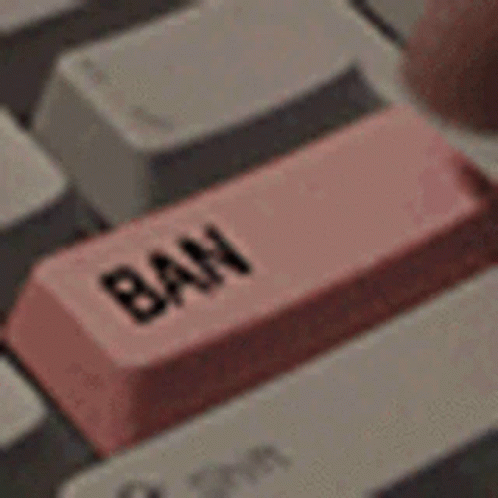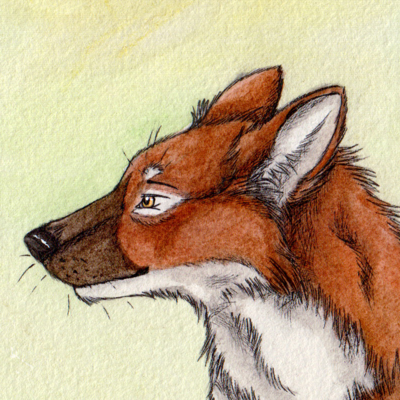Asking because my gf has ADHD and she told me that, the first time she took ritalin (methylphenidate), she thought to herself “So this is what it feels like to not have ADHD?”
That got me thinking, is there a drug that has a similar effect on autists, that allows them to experience what is it like to “not have autism”?
No. Autism is a different development of the brain, hence there is no ‘fix’ or drug, as can be read in medical literature.
I figured my shit out by reading John Elder Robison, and followed him in medias for a while. Some time back, 5-10 years, he tried out a thing where they stimulate an area of your brain with (IIRC) electromagnetism, and he talked about it the way some people talk about being born again (the Jesus kind of born again). “I once was blind but now I see!”
I’m sure a google will turn up how that’s going, it was just a study or something that he got to participate in at the time I think.
a thing where they stimulate an area of your brain with (IIRC) electromagnetism
Transcranial magnetic stimulation, probably. I did a round earlier this year. The only noticeable effect is that I now barely bite my nails after doing it my entire life. Like, that’s not why I went, but it is indicated as a treatment for compulsive behaviors. So that’s neat I guess.
I feel most normal when I’m around other neurodivergents. One person in my peer support group said that autism is an environmental problem rather than a personal one.
I have AuDHD and amphetamines make me feel “more normal” (easier) when I’m in a work setting or similar social environment with lots of stimuli. Then again when I’m at home they make me feel less normal (in those bigger doses that I need to function “outside”), I need to change the dosage according to amount of expected stimuli, I’ve heard other AuDHD people share the experience.
@Jojowski @ICastFist oh, I should have mentioned. There’s studies showing that autistic “social difficulties” disappear when we’re with other autistics.
So we get the closest feeling to “normal” when we’re hanging out only with other autistics, likewise if they want the closest feeling to being one of us they should attend an event in which they’re the only allistic.
If there was, they’d already have us on it from childhood.
I recommend psilocybin mushrooms.
I appreciate that from the responses here, it seems that a lot the autistic community views normal people as the equivalent of just being drunk or high. In other words, raw autism is like being extra sober.
I agree (moreso THC for me personally), but I also think it’s really funny.
I suspect that the usual alcohol/weed choices don’t actually change anything. They just deaden our ability to care as much about not messing up and whatever the current sensory shit is doing. So, less autism, but only because it’s less of our experience as a whole.
@DaGeek247 @paultimate14 @ICastFist This.
A lot of us autistic people tend to look down on allistics. Sometimes it’s a coping strategy to deal with the judgements levied against us, sometimes it’s a refusal to see our own flaws.
… and it’s not without value sometimes, because there are sometimes the allistics just suck… (see Identity Theory of Autism that highlights how we’re morally much more consistent than them)
For me, it’s called “stop forcing me to be social when I don’t want to”
I’ve got ADHD and stimulant meds help me get distracted less, but they don’t do much to help me focus on the right things sadly. Still definitely helpful though.
But no, I (a complete amateur with zero qualifications) highly doubt such a drug is possible, and if there were one it’d be kinda uncomfortable to ponder the very concept of making neurodivergent brains work like neurotypical brains at some point.
Like, why should we have to change when it’s society that sucks, not us?
Same, but meds in combination with my learned copes and methods, before and after diagnostic, is a miracle drug.
For example:
- I catch myself focusing on a news site or lemmy -> set a 5 minute timer when to stop
- pick an item from my todo-list. If no list is present, only make the list, then allow myself to do whatever I want
- don’t feel like any of those things -> just simulate doing them in my head. If still none appeal to me, I can do what I want. It happens often enough that I want to do one after the “simulation”.
@ICastFist Not really, with ADHD it’s primarily a chemical imbalance which means like 90% of the issues can be cleared chemically (ie. medication). It’s not exactly a “normal” experience, but it’s way closer than it was.
Autism on the other hand is broad and neurological, so much of it has to do with the actual physical structures of our brains (like density of nerve clusters), and there’s nothing that can be done about that.
Don’t forget that adhd can result in underdeveloped areas and overdeveloped areas when left untreated.
Edit: what about a GABA drug like GHB?
@SCmSTR that’s why I said primarily, but I recognize that was a subtle distinction and not very clear.
I don’t think any medication is going to really make us have an allistic experience, we can sometimes use medication for some comorbidities, but the things that make us autistic are too fundamental.
I realized in reply to someone else that I could have pointed out that we do have one occasion where we have something resembling an allistic experience, and that’s when we’re associating with other autistics.
They’ve done studies and our “social difficulties” disappear when we’re only interacting with other autistics.
It’s because our social issues are outside expectations and not a problem with us, we operating in an autistic manner. But because the world treats allistic norms as the only right way, we’re forced to accommodate them and they refuse to accommodate us… so we get difficulties. When we’re interacting with other autistics we’re basically using the same protocol, so everything is fine.
It’s still not entirely an identical experience, but it’s the closest we’ve got. We still have fundamental differences in our entire sense of selves (the recent Identity Theory of Autism highlights how we structure our identities in a completely different way from allistics, it’s why we typically don’t understand “school spirit” or “peer pressure”)
I’ve tried Escitalopram, Paroxetine, and Foquest… I’m not “normal”, per se, but I’m not freaking out as much as I am when I’m not on something…
That said, I feel “normal” after having a couple of drinks, or having some thc+cbd… obviously not a great idea to rely on either.
I’ve heads that the regions autists need help with chemically is a different region and chemical than regular adhd members. I don’t remember the exact chemical imbalance, something similar to SISG or something… not SISS. Hmmm…
I’ll try to find the science paper I read about it.
Please update if you do, I always like reading about that kind of thing.
My bad. It was something different, but it felt like something that might affect similarly.
https://www.sciencedaily.com/releases/2025/11/251110021114.htm
No worries, that was a good read too!
Yeah mushrooms
Yummy champignons
That’s not how that works
i always feel like i act more like a normie when i’m a bit drunk. have you tried that?
I get a lot more talkative, like stupid chatty drunk, but my faulty social filters end up failing more often, so I don’t think that could be considered a “normie experience”. If I go a bit overboard with alcohol, I get super depressed.
For me a couple drinks makes me more social, less literal, and less prone to overthinking. For me, the key is not overdoing it, starting in the tipsy pocket without leaning into drunk.
I have both, and I feel like Vyvanse helps against both.
Cocaine?
This is the answer. Cocaine says fuck all your social anxieties and awkwardness, you are going to have a passionate conversation with those around you and it’s going to be hella engaging.
IIRC cocaine functions as a reuptake inhibitor for dopamine, serotonin, and norepinephrine, while things like SSRIs and SNRIs inhibit the reuptake of just serotonin, or serotonin and norepinephrine. Clinical trails on coke could be interesting but id expect it more to target things like depression or maybe anxiety, which I know a lot of us develop trying to cope with the tism.
@nondescripthandle @AllNewTypeFace we pretty much have the data there, all that could separate are minor side effect differences… but it’s all overshadowed by the severe addiction side effect of cocaine.
A lot of people with ADHD have cocaine habits because, being a major stimulant, it helps with ADHD symptoms… plus cocaine is often easier to get ahold of than ritalin/adderall despite the latter being safer.
Do we have less data on drugs like Ketamine or MDMA? I’ve seen fairly recent tatgeted clinical trials for those for things likes PTSD and MDD. I just assumed no one tried to study cocaine in those types of settings yet.
@nondescripthandle I get what you’re thinking, the thing is that cocaine is really awful and we’ve got so many better alternatives. One of the biggest elements being the addictiveness, which generally means a drug loses it’s effectiveness over time (it’s why caffeine can help a tiny amount with ADHD but really isn’t recommended, because it actually makes it worse in the long run)
MDMA and Ketamine, while strong, aren’t especially addictive.
Feel “normal”? Yes, the drug that works. (High dose of cbd for me, a little alcohol can also work in a social setting)
Actual Neurotypical experience? Biologically impossible.
Your neurodivergent self is your real “normal”.
But when you no longer experience symptoms that cause the everyday problems you struggle with and feel like you just function optimal… that’s an amazing feeling allright. But it can almost feel like a high in contrast. Its definitely not what “neurotypicals feel like all the time”
They have their own days that they struggle or function more optimal.
The main difference is that there struggles are “normal” ones that “everyone has” and “understands” (y)ours are different and can cause social strife, exclusion.
Its possible that while your symptoms are gone you fit in better amongst neurotypicals and this sense of belonging is a big part of the neurotypical experience, but your brain is still a neurodivergent one at its core, with all the good and bad that goes on in it.













